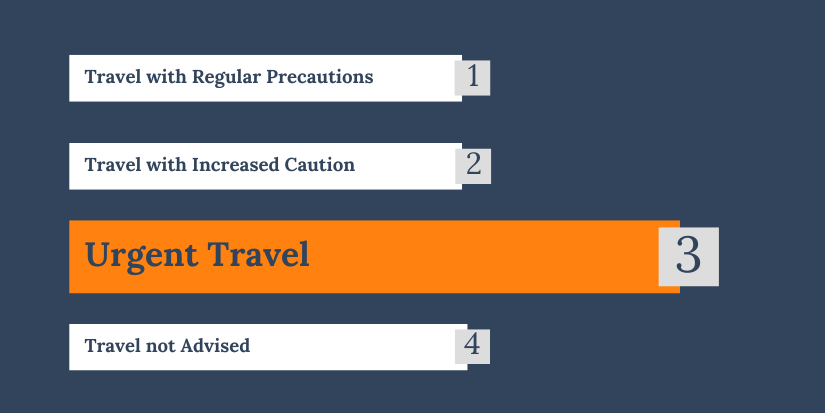
VISA REGIME
For holders of national passports and other travel documents: Visa required
For holders of diplomatic and official passports: No visas required for visits of up to 90 days
Note: Holders of emergency travel documents in transit do not require a visa if they do not leave the international zone of the transit airport in Bangladesh. In other cases, a visa is required
ENTERING AND LEAVING THE COUNTRY
Citizens of the Republic of Serbia travelling to Bangladesh first need to obtain an appropriate visa at the Embassy of Bangladesh in Rome, Italy (detailed information and contact details are available at: https://www.bdembassyrome.it/home/). When submitting a visa request, it is necessary to request information on the customs rules in force during entry into and exit from the country.
The period of validity of a passport for tourist travel or for regulating residence is 6 months.
A health insurance policy or evidence of vaccination are not required for travelling to Bangladesh, unless arriving from yellow-fever risk areas in which case holding a certificate on vaccination against yellow fever (“yellow card”) is necessary. This is also required in case of transit through an area where a yellow fever epidemic was declared, or in case of arrival to Bangladesh by airplane from such areas (if it is assessed that disinfection was not performed efficiently). Travellers who do not have a medical certificate for yellow fever in the above circumstances will be retained in quarantine for six days.
SOCIAL SECURITY AGREEMENT
No social security agreement has been signed.
USEFUL INFORMATION
HEALTH SITUATION — Vaccination is not mandatory (except for the above case of yellow fever), however vaccination against hepatitis A, hepatitis B, typhoid fever, and rabies is often recommended before travelling to Bangladesh. The overall sanitary situation in Bangladesh is complex and requires high alert when consuming water, food and maintaining personal hygiene. The consumption of tap water is not recommended, only bottled water. The consumption of food purchased from street vendors is also not recommended due to the lack of sanitary control. Food being consumed should be thermally processed, and only consumed in fresh form in places that meet the required hygienic conditions. It is necessary to regularly, and in particular prior to eating, wash hands with soap and water, or if that is not possible, to use envisaged means of disinfection.
A special aspect of the health situation in Bangladesh are hazards related to mosquito-borne diseases — malaria and dengue fever. Malaria is mainly limited to certain rural areas, particularly in the Chittagong region, while dengue fever is frequent in both rural and urban areas, including Dhaka. It is recommended to undertake preventive measures, primarily in the form of using mosquito repellent creams and wearing appropriate clothing with long sleeves and pant legs when outside, and proofing rooms when inside (closing windows that have no mosquito netting, using electric mosquito-repellent devices, etc.).
SECURITY SITUATION — Citizens of the Republic of Serbia staying in or intending to travel to Bangladesh are advised to undertake additional cautionary measures due to the danger of potential terrorist attacks. There are indications that the targets of terrorist attacks may be places of mass gatherings, including hotels, restaurants and bars, tourist locations, markets and shopping malls, mainly visited by tourists. Serbian citizens are advised to follow information in the public media and to comply with instructions of the local bodies and to cooperate with them.
The climate in Bangladesh is subtropical with the possible occurrence of extreme weather phenomena, such as cyclones. During the monsoon period, usually from June to September, large floods are frequent, which may impact stay or travel plans. Bangladesh is a tsunami-risk country. In case of a tsunami, upon the issuing of a warning by the Government of Bangladesh, it is necessary to monitor instructions broadcast by the local public media and to comply with them.
It is necessary to respect and comply with the local customs.
TRANSPORT — The railway network, although it covers nearly the entire territory of the country, has a relatively old infrastructure. Railway traffic is generally slow, with frequent gridlocks and delays.
Road transport in Bangladesh is characterised by extremely dense traffic, particularly notable on roads in urban zones, where a large number of cars, buses, trucks, rickshaws and pedestrians circulate. Driving a motor vehicle requires holding an international driving permit, however it is recommended to leave the driving to the local drivers due to the specific traffic conditions. Particular caution should be exercised when driving at night, since many vehicles do not have lights or drive with high beams, thus making traffic difficult. Street lighting is poorly developed, both in rural and urban areas.
Travelling by river or sea ferries — if there is need for using these means of transport — also requires particular caution since the number of travellers often exceeds their capacities, creating a danger of overturning or incidents of other kind, particularly notable during religious festivals and other holidays.
OTHER INFORMATION — The currency of Bangladesh is the Bangladeshi taka (BDT). In all major cities in Bangladesh (Dhaka, Chittagong, Bogra, Sylhet, Narayanganj, Khulna), there are ATMs (available mainly in branches of the Standard Chartered Bank and some larger hotels).
The local rules of behaviour and dress code impose respect for tradition, customs and regulations in force at all times, and the need for foreigners to never offend, through their behaviour or in any other way, the culture or religious beliefs of the local population, particularly during the month of Ramadan or when visiting religious facilities. The dress code of women and men involves a simple style of dress, adapted to the local culture and climate conditions.
Contact information:
During your stay in Bangladesh, for consular assistance and protection you may contact the Embassy of the Republic of Serbia in the Republic of India (covering Bangladesh on a non-residential basis), at the following telephone number: 00 91 11 26 87 20 95 or e-mail: embassyofserbiadelhi@hotmail.com.
